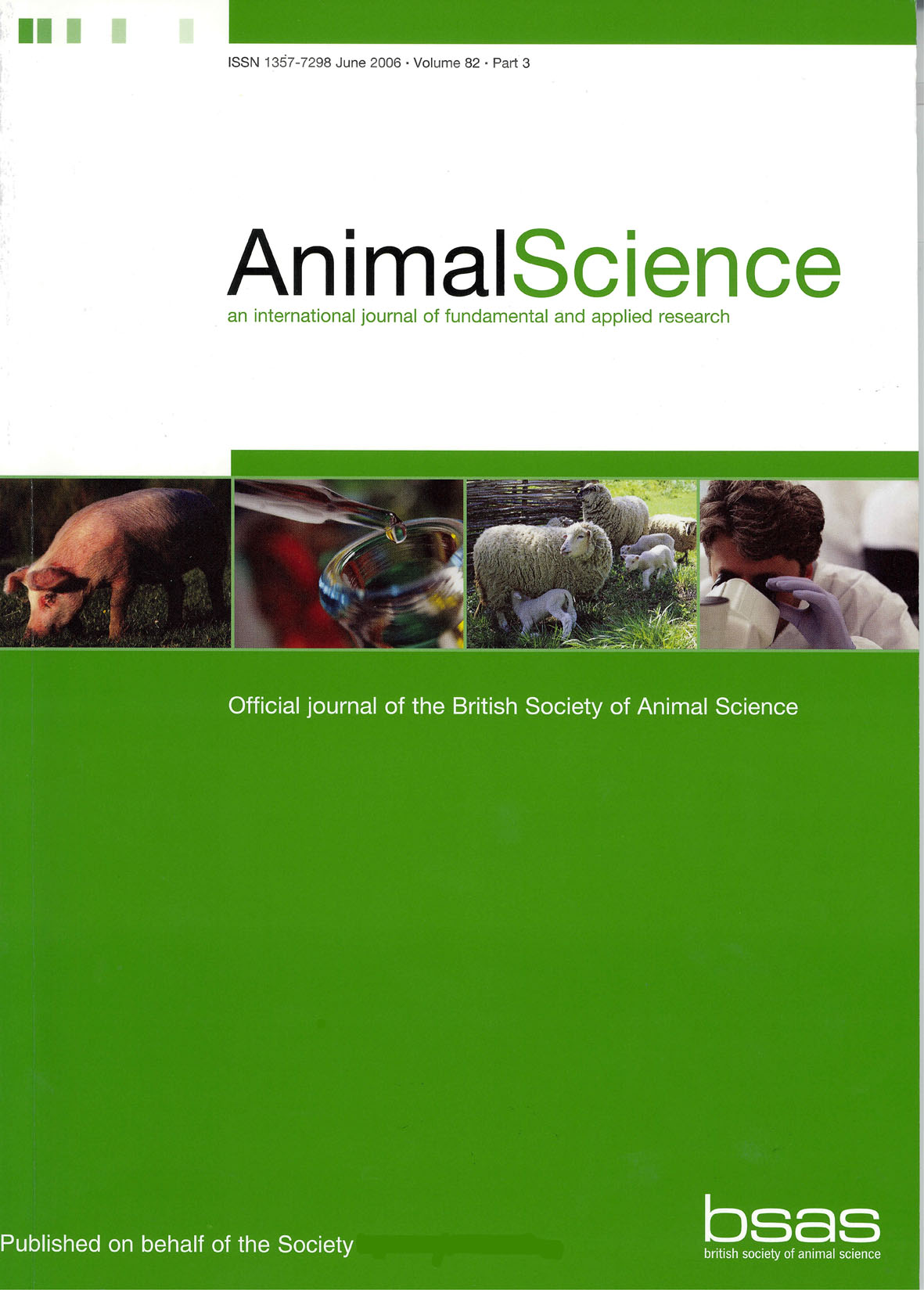Article contents
Performance of young steers offered silage or thermo-ammoniated hay with or without a fish-meal supplement
Published online by Cambridge University Press: 02 September 2010
Abstract
An experiment was carried out to examine the performance of young steers given basal diets of either silage or ammoniated hay ad libitum, with or without a daily supplement of fish meal, equivalent to 0·75 g/kg live weight, over 16 weeks. Serial slaughter of animals was carried out to examine changes in body composition during the winter feeding period and the subsequent grazing season.
There was no difference in the intakes of hay and silage organic matter over the 16 weeks of treatment. Despite the increased intake of nitrogen on the ammoniated-hay diet there was no increase in the rate of protein gain. By turn-out the steers given silage had higher empty body and carcass weights, and greater contents of fat and energy. The increased rates of empty body-weight, carcass, protein, water and energy gains achieved when the supplement was given were similar for both basal diets. There was no effect of winter feeding treatment on changes in body composition during the grazing period, so that at the end of the summer period the silage-fed animals still had heavier empty body and carcass weights. Attention is also drawn to the possible dangers of feeding hay treated with anhydrous ammonia at high temperatures to such cattle.
- Type
- Research Article
- Information
- Copyright
- Copyright © British Society of Animal Science 1987
References
REFERENCES
- 12
- Cited by


